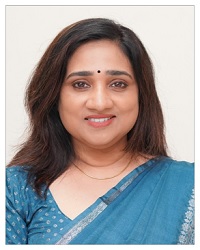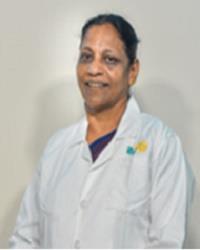Search Result: 3

Dr Elizabeth Jacob
MBBS, MD(Obstetrics & Gynecolgy), DNB(Obstetrics & Gynecolgy), FICOG
Registration No
3440701
Language
English

18 years experience overall

Karukutty , kochi
MON- SAT(09:30 AM-06:00 PM)

Dr Lekha K L
MBBS, DGO, DNB, FMAS, MNAMS
Registration No
6395726
Language
English, हिंदी

15 years experience overall

Karukutty , kochi
SUN- SAT, SUN- SAT(09:00 AM-05:30 PM)

Dr Mercy C V
MBBS,DGO
Registration No
3245231
Language
English, हिंदी, മലയാളം, தமிழ்

35 years experience overall

Karukutty , kochi
THU, FRI | MON- WED, SAT(08:30 AM-06:00 PM | 08:30 AM-04:30 PM)
Frequently Asked Questions for s in
In endometriosis, oestrogen levels are often higher than normal. Oestrogen promotes the growth of endometrial tissue, which can lead to the development and progression of endometriosis. Balancing hormone levels through medication or hormonal therapy can help manage the condition.
Endometriosis itself does not directly cause hair loss. However, hormonal imbalances associated with endometriosis, such as high oestrogen levels, can contribute to hair loss in some women.
Endometriosis primarily affects the reproductive organs; however, rarely, it can spread to other parts of the body, including the skin. This condition is known as cutaneous endometriosis and can result in lesions or nodules on the skin, causing discomfort.
Yes, endometriosis can sometimes return after surgery. Recurrence rates may vary depending on factors such as the severity of the disease, the type of surgical procedure performed, and hormonal factors. Regular follow-ups with your doctor are important to monitor the condition.
Evidence suggests that there may be a genetic component to endometriosis. Women with close relatives (mother or sister) having endometriosis are at a greater risk of developing the condition themselves.
Endometriosis can affect women of any age who have started menstruating. However, it is most commonly diagnosed in women in their 30s and 40s. It is important to note that endometriosis can also occur in adolescents and women approaching menopause.
Non-surgical treatments for endometriosis include pain medication, hormone therapy (like birth control pills or progestin-only contraceptives), and lifestyle changes like regular exercise and a healthy diet. These treatments can help manage symptoms and reduce the growth of endometrial tissue.
Dealing with endometriosis can be emotionally challenging. It is important to seek support from loved ones, join support groups, and consider counselling to cope with the impact of the condition.
Endometriosis can cause chronic pain, infertility, fatigue, and emotional distress. It may also disrupt daily activities, work, relationships, and overall quality of life. The unpredictable nature of symptoms and difficulty in diagnosis can add to the challenges faced by those with endometriosis.
The actual cause or reason for endometriosis is still unknown. However, it is believed that factors such as hormonal imbalances, genetics, immune system disorders, and retrograde menstruation (when menstrual blood flows back into the pelvis instead of out of the body) may contribute to its development.
Endometriosis can be diagnosed through medical history examination, physical evaluation, and imaging tests such as ultrasound or magnetic resonance imaging (MRI). Sometimes, a laparoscopy may be performed to visualise and biopsy the endometrial tissue for confirmation.
You should see a doctor if you experience pelvic pain, painful periods, heavy menstrual bleeding, painful bowel movements or urination, infertility, or other concerning symptoms related to your reproductive organs.
A gynaecologist or a reproductive endocrinologist is typically the specialist who treats endometriosis. These doctors have expertise in women’s reproductive health and are well-versed in diagnosing and managing conditions like endometriosis.
Unfortunately, there is no known way to prevent endometriosis. However, maintaining a healthy lifestyle, such as a balanced diet and regular workout, may help reduce the risk of developing the condition.
The treatment options for endometriosis include pain medication, hormone therapy, and surgery. Pain medication can help manage the symptoms, while hormone therapy can help in regulating the menstrual cycle and reduce the growth of endometrial tissue. More severe cases may, however, require surgery to remove the endometrial tissue or to repair any damage caused by the condition.
Related Procedures in Cochin
- Doctors for Hysterectomy in Cochin
- Doctors for Mastectomy in Cochin
- Doctors for C-section in Cochin
- Doctors for Medical abortion in Cochin
- Doctors for Myomectomy in Cochin
- Doctors for Adhesiolysis in Cochin
- Doctors for Hysteroscopic Polypectomy in Cochin
- Doctors for Diagnostic Laproscopy in Cochin
- Doctors for Fibroid Removal in Cochin
- Doctors for Laparoscopic Assisted Vaginal Hysterectomy in Cochin
- Doctors for Removing Uterine Polyps in Cochin
- Doctors for Total Laparoscopic Hysterectomy in Cochin
- Doctors for Diagnostic Hysteroscopy in Cochin
- Doctors for Ovarian Cyst Removal in Cochin
- Doctors for Hysteroscopic Myomectomy in Cochin
- Doctors for Tubal Ligation in Cochin
- Doctors for Breast Surgery in Cochin
Related Treatments in Cochin
- Doctors for Ectopic Pregnancy Treatment in Cochin
- Doctors for Endometriosis Treatment in Cochin
- Doctors for Hirsutism Treatment in Cochin
- Doctors for Lichen Planus Treatment in Cochin
- Doctors for Menopause Treatment in Cochin
- Doctors for Polycystic Ovary Syndrome Treatment in Cochin
- Doctors for Sexually Transmitted Diseases Treatment in Cochin
- Doctors for Urinary Incontinence Treatment in Cochin
- Doctors for Uterine Fibroids Treatment in Cochin
- Doctors for Uterine Prolapse Treatment in Cochin
- Doctors for Vaginitis Treatment in Cochin
Other Specialities in Cochin
- Best Urologist in Cochin
- Best Pulmonologist in Cochin
- Best General Physician in Cochin
- Best Endocrinologist in Cochin
- Best Cardiologist in Cochin
- Best Oncologist in Cochin
- Best Radiologist in Cochin
- Best Orthopedics in Cochin
- Best Hepatologist in Cochin
- Best Gynecologist in Cochin
- Best Dermatologist in Cochin
- Best Gastroenterologist in Cochin
- Best Psychologist in Cochin
- Best Ent Specialist in Cochin
- Best Nephrologist in Cochin
- Best Rheumatologist in Cochin
- Best Diabetologist in Cochin
- Best Psychiatrist in Cochin
- Best Neonatologist in Cochin
- Best Dentist in Cochin
- Best Dietitian in Cochin
- Best Haematologist in Cochin
- Best Pediatrics in Cochin
- Best General Surgeon in Cochin
Top Hospitals in India
- Hospitals in Ahmedabad
- Hospitals in Bangalore
- Hospitals in Bhubaneswar
- Hospitals in Bilaspur
- Hospitals in Chennai
- Hospitals in Delhi
- Hospitals in Guwahati
- Hospitals in Hyderabad
- Hospitals in Indore
- Hospitals in Kolkata
- Hospitals in Madurai
- Hospitals in Mumbai
- Hospitals in Mysore
- Hospitals in Nashik
- Hospitals in Noida
- Hospitals in Visakhapatnam
- Hospitals in Lucknow
- Hospitals in Bhopal
- Hospitals in Karur
- Hospitals in Kochi
- Hospitals in Nellore
- Hospitals in Trichy
- Hospitals in Kakinada
© Copyright 2024. Apollo Hospitals Group. All Rights Reserved.
 +91 8069991061
Book Appointment
+91 8069991061
Book Appointment






 Call Now
Call Now



